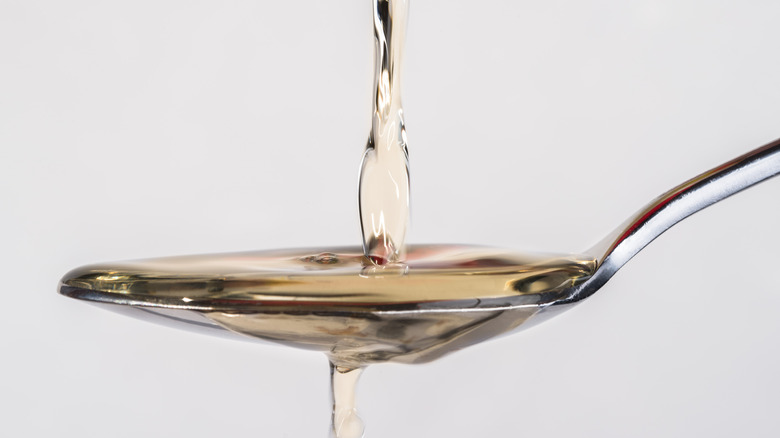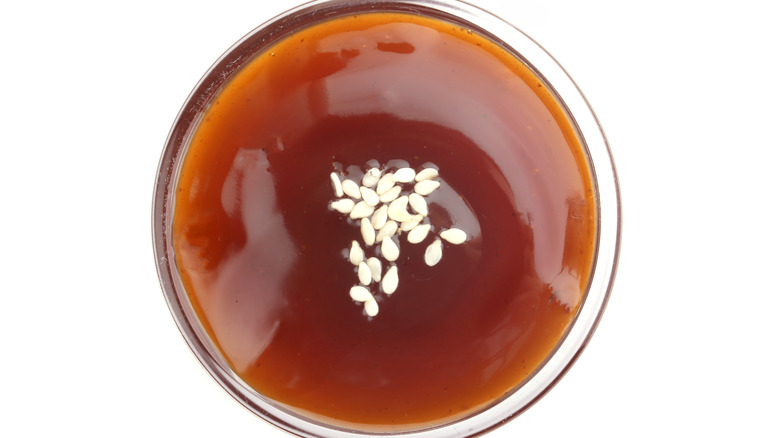This Ingredient Is A Must In Japanese Teriyaki Sauce
If there was one thing globalization gave foodies, it was the opportunity to take a closer look at other cultures, identify the parts we liked, and then make it our own. Such was the case with teriyaki sauce, the all-purpose Japanese brown-colored sauce that can be used as a marinade for meats and seafood, as a sauce in stir fries, or even as a dipping sauce for appetizers and sides like kebabs, per The Spruce Eats. Teriyaki sauce is sought after for this versatility, and because it gives a salty-sweet umami quality to dishes for which it is assigned a prominent supporting role.
While most of us are inclined to buy commercially made teriyaki sauce, it's not too difficult to make it at home, but there are a number of ingredients we need to have on hand so that it tastes authentic: soy sauce, rice wine, sugar, and mirin, per Live Japan. Of all the ingredients, mirin is probably the one we are least familiar with, and it is the one ingredient teriyaki sauce needs in order to keep it real.
Mirin is a sweet wine made with glutinous rice, distilled alcohol, and rice mixed with koji, which MasterClass describes as "a starch-eating fungus used to make alcohol, vinegar, and fermented soy products." While it is considered to be similar to saki, Sushi Sushi says the former is made with sticky rice, and the latter, with sushi rice. While real mirin might contain 14% alcohol, there is also a type of mirin that contains less than 1% alcohol.
Mirin is what gives teriyaki sauce its salty-sweet umami
Mirin is widely used as an ingredient in Japanese cooking; it can be found in soups including ramen and sukiyaki; as a marinade for meats and seafoods, thanks to its meat-tenderizing properties — and because it has a salty-sweet umami quality to it, mirin is also soy sauce's partner in making teriyaki sauce what it is.
If you're desperate for homemade teriyaki but aren't able to find any mirin, MasterClass says you can swap mirin out for a mix of sugar and soy; sugar and rice wine vinegar; sugar and sake; or dry sherry. But to leave out the mirin will leave you with an inferior teriyaki wannabe. Besides missing out on the umami, you may also find that the shimmer that mirin imparts to dishes will be missing.
But don't be surprised if you find your homemade teriyaki sauce sans mirin alone won't taste too different from the sauce you buy at your neighborhood supermarket. Live Japan says the kind of teriyaki sauce Americans are used to consuming has been developed for the American market, and contains a host of ingredients including ginger, garlic, and sugar — which are absent from its Japanese cousin.

